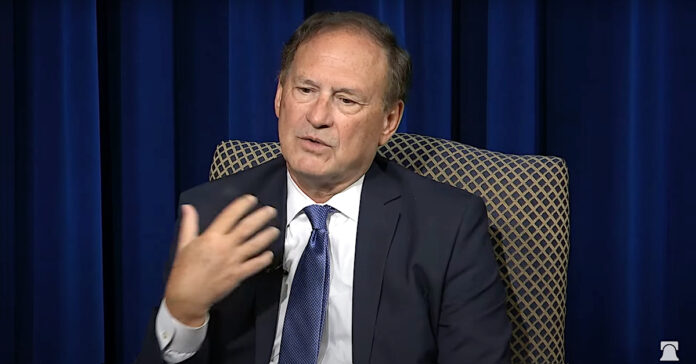In a turn that has ratcheted up the tension in the high-stakes arena of the U.S. Supreme Court, Justice Samuel A. Alito Jr. defiantly confirmed he will not step aside from the upcoming and closely-watched unrealized gains tax case. In a recent order, Justice Alito dismissed claims suggesting a potential bias due to a prior interaction with an attorney involved in the case.
Justice Alito Tax Case: Unraveling the Core Controversy
What’s the fuss all about? It boils down to an intriguing subplot: An attorney for the case, BakerHostetler partner David B. Rivkin Jr., had previously interviewed Justice Alito for two pieces in the Wall Street Journal. However, Alito underscores that Rivkin wore his journalist hat during those conversations, not his lawyer one. “There was nothing out of the ordinary about the interviews in question,” Alito noted, ensuring that the tax case or related matters were never broached.
Justice Alito Tax Case : A Political Chess Move?
Not everyone was convinced. Sen. Dick Durbin, D-Il., along with the Senate Judiciary Commission, recently advanced a bill pushing for a Supreme Court ethics code. They appealed to Chief Justice John G. Roberts Jr., voicing concerns over the possible influence Mr. Rivkin might wield over Justice Alito. In their eyes, the lines between personal relations and professional duty appeared blurred.
Alito Strikes Back with a Vengeance
Taking the challenge head-on, Justice Alito critiqued such assumptions. Drawing a line between personal connections and professional obligations, he argued, is a daily undertaking for Supreme Court Justices. Their work often interlaces with attorneys, lawmakers, and others who may have voiced opposition or criticism in the past. But as Alito firmly stated, “In all the instances mentioned above, we are required to judge the case based solely on the law and the facts. And that is what we do.”
The Main Event: Moore et al. v. United States
Amidst this whirlwind of claims and counterclaims lies the crux of the matter: a critical case where the 16th Amendment’s power is in the spotlight. The Moores, represented by a powerhouse team from BakerHostetler and the Competitive Enterprise Institute, challenge the government’s taxing methodology, deeming it unconstitutional.



